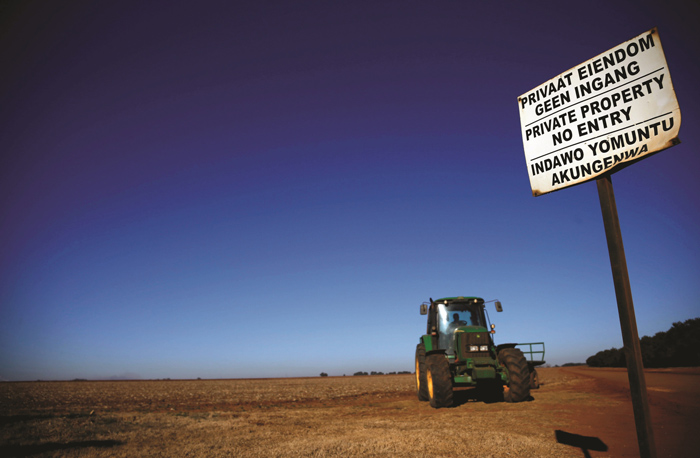Unlawful occupation and use of land are a serious problem affecting all South Africans. According to the latest housing data from the Department of Human Settlements, there are 4 297 informal settlements across the country. These settlements are home to more than two million households.
Very often such occupations occur on valuable agricultural land that belongs to municipalities and other state entities. In most instances, no infrastructure or services are provided, posing serious health, environmental, and security risks to neighbouring landowners, including producers.
Legislation
In terms of section 26 of the Constitution and section 3 of the Housing Act 107 of 1997, the Department of Human Settlements is responsible for establishing and facilitating a sustainable national housing development process in collaboration with provinces and municipalities.
South Africa has no shortage of legislation dealing with land use and illegal land occupations. Over and above the Constitution and the Housing Act, these include the Spatial Planning and Land Use Management Act, the (soon to be promulgated) Prevention of Illegal Eviction from and Unlawful Occupation of Land Amendment Bill, the Preservation and Development of Agricultural Land Bill, building regulations, health by-laws, and many others. From an environmental point of view, the constitutionally enshrined right to an environment that is not harmful to one’s health and well-being is extensively expanded upon in terms of the National Environmental Management Act 107 of 1998 and the various specific environmental management acts, including the National Water Act 36 of 1998.
Government clearly understands the problem, as seen from the Human Settlements White Paper, which specifically aims to reduce urban sprawl and protect peri-urban agricultural areas (private or state-owned land) from illegal occupation. The Prevention of Illegal Eviction from and Unlawful Occupation of Land Amendment Bill (once promulgated) will criminalise inciting illegal land occupations, amongst other things.
Every land occupation or illegal land use is unique and may occur for various reasons. It is important to remember that most often they occur because people simply do not have any other option. Our courts have to perform a delicate balancing exercise between various competing rights and interests, including the rights to property, health and safety, social security and others, but have to place the needs of people at the forefront at all times.
From a practical point of view, quick action is needed to ensure that where it does happen, trespassing does not become an occupation. Points to bear in mind include the following:
- Collaboration is needed across all spheres of government and between all role-players to prevent illegal occupation of land from happening.
- Private landowners must know who owns neighbouring properties that might become illegally occupied and should know whom to contact should trespassers or potential illegal occupiers of such land be observed.
- Court action by itself will not prevent the illegal occupation or use of land and all reasonable measures must be considered to prevent such occupations from happening in the first place.
- Court interdicts or applications to compel the responsible authorities to perform their duties must be considered where appropriate.
- A landowner may claim damages from negligent state entities or municipalities who might have failed in their duties to prevent illegal land occupations from happening.
- Organisations such as AgriSA and affiliated members offer guidance on how to deal with illegal land uses and land occupations and farmers are encouraged to become involved at local level.
The issue of illegal land occupations remains a major concern to organised agriculture. Within our various structures, we should consistently seek to find constructive ways to address the issues related to this matter.




















